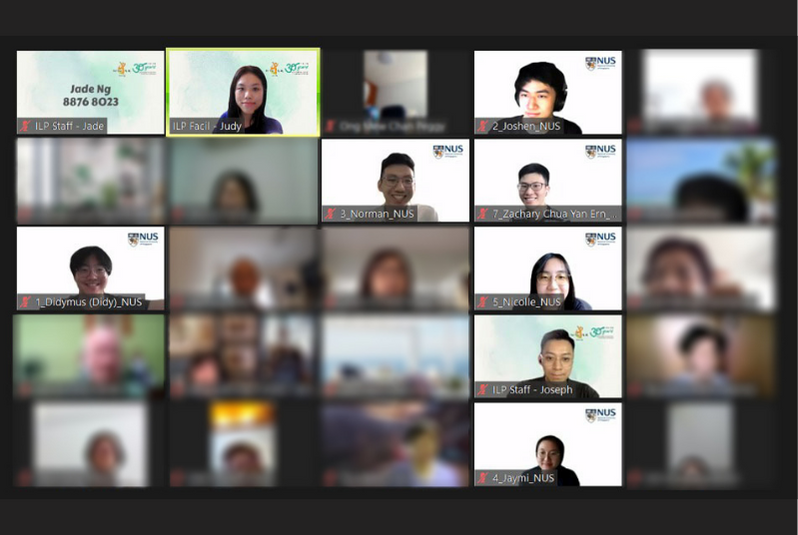Think back to the last time you read a repeatedly-forwarded WhatsApp message; you would have ignored it, knowing it was not presenting the whole truth. However, not all users are discerning, especially senior citizens with limited understanding of the Internet.
On 9 December 2021, Project Fake News from NUS’ SOGP (Seeds of Good Programme) spent the day teaching 22 senior citizens how to verify fake news. As part of Fei Yue Community Service (FYCS)’ Intergenerational Learning Programme, these seniors had signed up to learn more about student-suggested topics, such as the aforementioned.
Project head Didymus Ng (Year 2, Computer Science) elaborates on the project’s motivations. According to him, misinformation is becoming increasingly common on the Internet, due to misleading articles and major banking scams. Didymus notes the perception that “seniors [tend] to be disconnected or outdated” and that it is dangerous, as it exposes them to online deception.

With their 3D framework – Doubt, Double Check, Don’t Spread – Project Fake News help seniors’ individual responses to online falsehoods first: in particular, their initial emotional responses towards the falsehoods. Next, the team equipped the seniors with appropriate steps to keep themselves safe, from fact-checking to seeking verification of dubious messages instead of spreading rumours.
Though the organisers predicted that the seniors’ learning experience would be hindered by teaching over Zoom, they were pleasantly surprised by their beneficiaries. After being taught basic Zoom functions, the seniors used them effectively, like using the Zoom chat function to pose questions instead of unmuting themselves to interrupt the speaker.
Additionally, the organisers noticed that the seniors were very enthusiastic in their interactions with one another, for example, while talking to each other in breakout rooms, or representing their breakout room to share insights with the whole group.
These endeared the seniors to the team who felt fulfilled from teaching the seniors new things, answering their questions, and hearing the anecdotes shared. Didymus fondly recalls an 80-year-old express that he maintained an active lifestyle through learning and exercise and concludes with the team that “life doesn’t have to slow down even as (they) age”.
Share:
Contributor
Contributor: Yong Jia Yu, CNM Undergraduate




